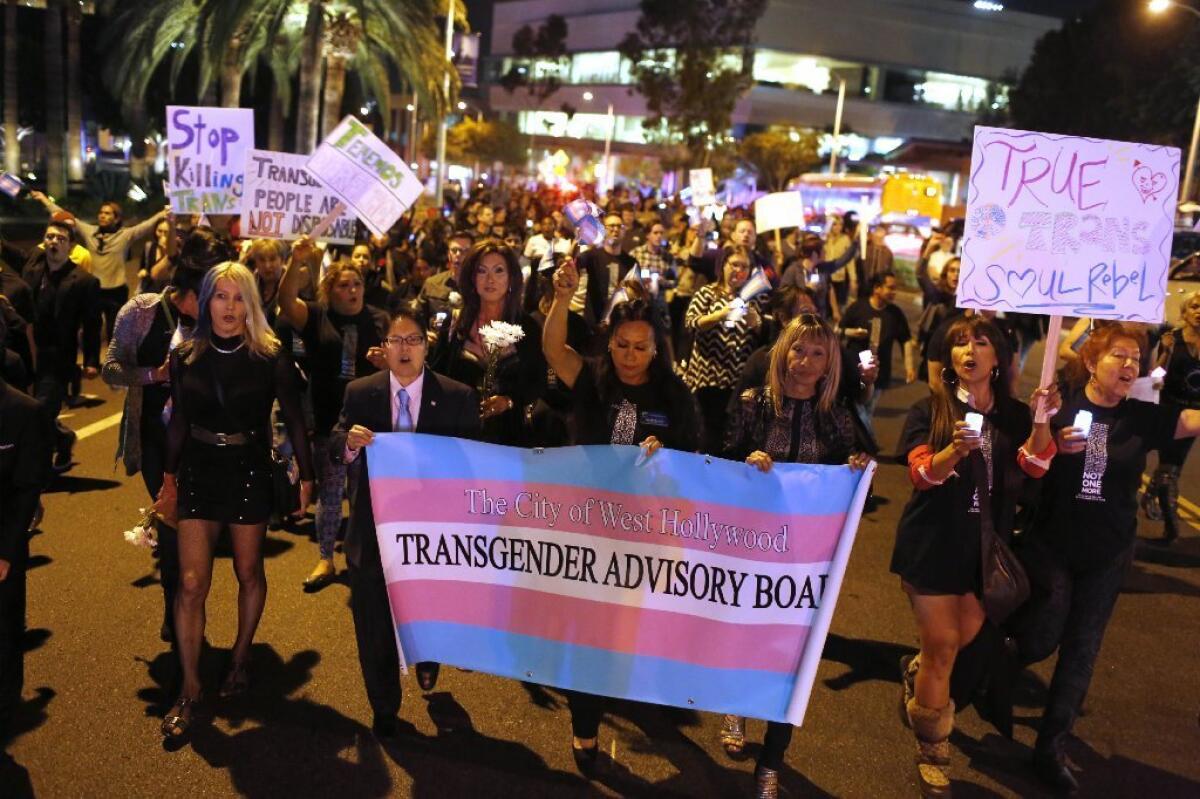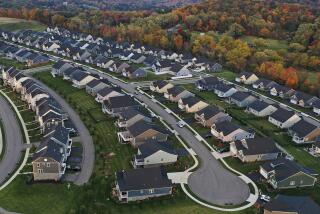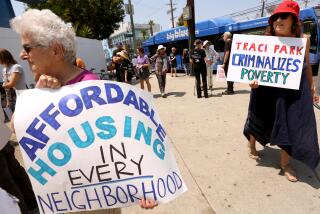Op-Ed: Trump’s Housing Department wants to make transgender discrimination legal again. Don’t let it

The need for universal access to safe, stable housing may have never been more urgent. The grave health risks faced by those experiencing homelessness are only made more severe by this pandemic. Los Angeles, which has one of the highest rates of unsheltered homelessness in the country, has seen numerous COVID outbreaks among unhoused communities, and experts predict that Los Angeles may be facing an increase in homelessness of up to 16 percent due to COVID. The most marginalized among us are left particularly vulnerable to both the virus and its lasting economic impact.
This is particularly true for transgender Americans, who are disproportionately afflicted by poverty and homelessness even in better years. But instead of strengthening support for the trans community, the Trump administration has taken steps to weaken it. In July, the Department of Housing and Urban Development, under the leadership of Secretary Ben Carson, proposed a dangerous new rule that would allow taxpayer-funded emergency shelters to discriminate against transgender people.
By permitting shelters to serve people on the basis of “biological sex” without regard for gender identity, this rule would explicitly grant single-gender shelters permission to close their doors to transgender people experiencing homelessness. Mixed-gender shelters would be allowed to force transgender people to access services based on the gender they were assigned at birth instead of their gender identity. This places them at increased risk of gender-based violence and sexual assault. HUD’s stated mission is “to create strong, sustainable, inclusive communities and quality affordable homes for all,” and to “build inclusive and sustainable communities free from discrimination.”
This proposed rule runs directly counter to that mission.
Transgender people face devastating rates of homelessness across the United States. Nearly one-third of respondents to the 2015 U.S. Trans Survey — a major accounting of the experiences of trans Americans — reported being homeless at some point. One in eight said they had been homeless within the previous year.
The survey results paint an even more dire picture for Black trans women, a group especially vulnerable to abuse, violence and HIV. More than 50 percent of respondents said they had experienced homelessness at some point in their lives, and nearly one-quarter of them reported being homeless within the previous year.
If this rule is adopted, it will endanger trans people. Many of those experiencing homelessness will not seek shelter, fearing discrimination (which nearly 30% of transgender people seeking shelter have experienced) and potential violence (22% of trans people experiencing homelessness report being sexually assaulted by shelter staff or residents). Those who do seek shelter will be more likely to be turned away or harassed for who they are.
In the context of COVID-19, this means that trans people experiencing homelessness will be at a heightened risk of falling ill, since shelters are many communities’ best access point to the safe, individual housing options that the CDC stresses must be made available to people experiencing unsheltered homelessness. It’s true that, in the time of COVID, shelters might not always be safer than unsheltered living. But individual housing options —such as the hotel rooms offered through California’s Project Roomkey — absolutely are. To ensure equitable access to housing, we need to ensure equitable access to emergency shelters.
Enforcing equal access to shelter is the least we can do for transgender people in our communities. They are ordinary people whose lives should never be used as a political wedge issue in cynical campaigns that try to turn neighbors against one another.
Rather than thinking of new ways to make trans people’s lives more difficult, the Trump administration should be developing and executing strategies that build on the progress made under the Obama administration, which dramatically reduced homelessness for LGBTQ+ people, veterans and families. The federal government should not target the rights of trans people. Instead, as a society we should be dedicated to helping the trans community, which has historically experienced social and economic harm because of who they are.
All too often, American society has failed to provide crucial and necessary support for the estimated 1.4 million transgender Americans — including one in 50 teenagers — who have lived authentically despite great obstacles. That cannot be the case once again. The Housing Saves Lives campaign is working to stop this discriminatory new proposal, which has a comment due date of September 22nd. The HUD must uphold its own Equal Access Rule, in both letter and spirit.
Julián Castro was secretary of Housing and Urban Development from 2014 to 2017. Shaun Donovan was the HUD secretary from 2009 to 2014. Cyndi Lauper is the co-founder of True Colors United.
More to Read
A cure for the common opinion
Get thought-provoking perspectives with our weekly newsletter.
You may occasionally receive promotional content from the Los Angeles Times.










